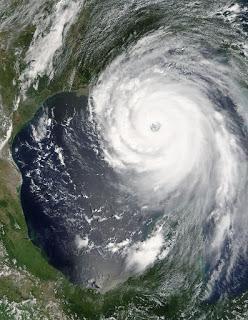
Rebecca Solnit on why we need to get what happened in New Orleans with Hurricane Katrina right:
Five years later we’re still coming to terms with what happened in New Orleans on August 29, 2005, and thereafter, struggling to get the facts straight and to figure out what it said about race, disaster and even human nature. How we remember Hurricane Katrina is also how we’ll prepare for future disasters, so getting the story right matters for survival as well as for justice and history.
Melissa Harris-Perry and James Perry on more reasons we need to get what happened in New Orleans with Katrina right:
The slow and militaristic response to black suffering was as visible in the Lower Ninth Ward in 2005 as it would be nine years later in Ferguson.
The preceding two essays are from a treasure trove of articles now online at The Nation website, commemorating the disaster in New Orleans in the last week of August 2005. I recommend this resource to you.
We have to remember, and to remember accurately, because, as Jamelle Bouie points out to us,
Hurricane Katrina exposed our nation's amazing tolerance for black pain.
The fact that ten years after Katrina, Donald Trump, with his overtly racist dog whistles about immigration, could be surging in the polls and could come to represent the position taken by one of our nation's two major political parties (!) speaks volumes about who we are, what we have made of ourselves. Katrina held a mirror up to the American people, and in 2015, when we look in that mirror, we see the face of Donald Trump.
Many of us are oblivious to the pain of poor people, people on the margins — especially when those people have black faces or brown faces. Not a few of us even delight in the pain of those on the margins. We revel in our sense that the pain of those who have not made it deserve to suffer, that "those people" deserve punishment.
Many of us who are Catholic — surely a solid percentage of the 60% of white Catholics in the U.S. who voted Republican in the fall elections 2014 — are not only comfortable with these attitudes: we embody these attitudes. Our much-touted commitment to Catholic moral principles has done nothing at all to challenge our core values in these areas of race and social and economic justice. And this, of course, puts the lie to the claim that conservative Catholics have some special corner on the market of moral values, or that the Catholic hierarchy, who have shaped these conservative Catholics, have such a corner on the ethics market.
Another resource on Katrina I'll recommend to you today while noting that it has been compiled by a group that has a somewhat commercial slant (TakePart describes itself as a project for the "conscious consumer") of which I would encourage you to be aware as you consider its resources: the Project Katrina collection at TakePart.
The photo of Katrina at maximum strength on 28 August 2005 is by Jeff Schmaltz of NASA's MODIS Rapid Response Team and has been uploaded to Wikimedia Commons for sharing.

